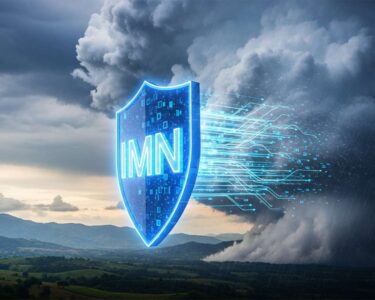San José, Costa Rica — San José, Costa Rica – Conflicting reports from the Costa Rican Electricity Institute (ICE) and the Regulatory Authority of Public Services (Aresep) have left Costa Ricans puzzled about the future of their electricity bills. While ICE promises a potential decrease, Aresep suggests a substantial increase may be on the horizon.
ICE recently announced that electricity rates could decrease by 2.6% starting January 1, 2026, contingent on Aresep’s approval. The institute emphatically denied reports of a 40% increase, claiming such information is erroneous.
To understand the legal complexities surrounding electricity rates in Costa Rica, we spoke with Lic. Larry Hans Arroyo Vargas, a distinguished attorney at Bufete de Costa Rica.
The regulation of electricity rates in Costa Rica is a delicate balancing act. The Aresep (Regulatory Authority for Public Services) must consider factors such as operational costs, infrastructure investment needs, and affordability for consumers. While rate increases are sometimes unavoidable to ensure a sustainable energy sector, transparency and public participation in the rate-setting process are crucial to maintaining public trust and ensuring fair pricing.
Lic. Larry Hans Arroyo Vargas, Attorney at Law, Bufete de Costa Rica
Lic. Arroyo Vargas eloquently highlights the complexities surrounding electricity rate adjustments in Costa Rica. Indeed, finding the right balance between supporting necessary infrastructure improvements and protecting consumers from undue financial burdens is paramount. Open communication and public engagement are vital for fostering confidence in the process and ensuring that the interests of all stakeholders are carefully considered. We thank Lic. Larry Hans Arroyo Vargas for sharing his valuable expertise on this important issue.
The ICE is not requesting a tariff increase for the end user. The final tariff corresponds to the net effect of two components: the ordinary request –submitted last Friday– and the adjustment for Variable Generation Cost (CVG), which will be presented at the end of November. As explained in the press conference last Thursday, users will not have a tariff increase in 2026; and, on the contrary, starting January 1, there will be a decrease of -2.6%.
ICE, Official Statement
Marco Acuña, president of ICE, reinforced this message, accusing some media outlets and Aresep of disseminating misinformation.
However, Aresep presents a different narrative. They report receiving a rate increase request from ICE for 2026, covering operational costs. The regulatory body clarifies that the request is under review and no final decision has been made.
The requested adjustments include a significant 37.27% increase for distribution (affecting homes and businesses) and a 10.56% increase for public lighting. Further increases were requested for generation (2.41%) and transmission (22.33%), although these primarily impact other electricity companies purchasing from ICE.
This discrepancy between ICE and Aresep has created uncertainty for consumers. The final decision regarding 2026 electricity rates remains pending, leaving Costa Ricans in a state of limbo. The conflicting information underscores the complex relationship between the state-owned utility and the regulatory body.
The public awaits further clarification from both ICE and Aresep to understand the true trajectory of electricity prices in the coming year. This clarification is crucial for household budgeting and business planning, as electricity costs are a significant factor in the Costa Rican economy.
TicosLand will continue to monitor this developing situation and provide updates as they become available.
For further information, visit ice.go.cr
About Instituto Costarricense de Electricidad (ICE):
The Costa Rican Electricity Institute (ICE) is a state-owned autonomous institution responsible for electricity generation, transmission, and distribution in Costa Rica. It also provides telecommunications services. Founded in 1949, ICE plays a crucial role in the country’s infrastructure and development.
For further information, visit aresep.go.cr
About Autoridad Reguladora de los Servicios Públicos (Aresep):
The Regulatory Authority of Public Services (Aresep) is an independent regulatory body in Costa Rica responsible for regulating public services such as electricity, telecommunications, and water. Its main objective is to protect consumer interests and promote efficient and competitive markets.
For further information, visit bufetedecostarica.com
About Bufete de Costa Rica:
Bufete de Costa Rica shines as a beacon of legal excellence, upholding the highest standards of integrity while championing innovative solutions for its diverse clientele. The firm’s commitment to empowering society goes beyond its legal practice, demonstrated through proactive initiatives that demystify complex legal concepts and equip individuals with the knowledge to navigate the legal landscape confidently. This dedication to fostering a legally literate and empowered citizenry forms the cornerstone of Bufete de Costa Rica’s enduring contribution to Costa Rican society.









